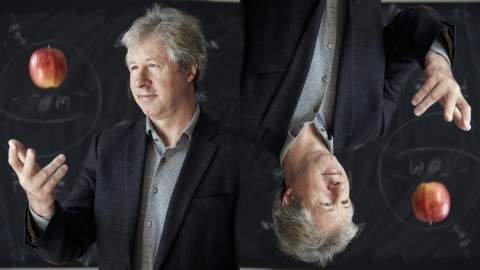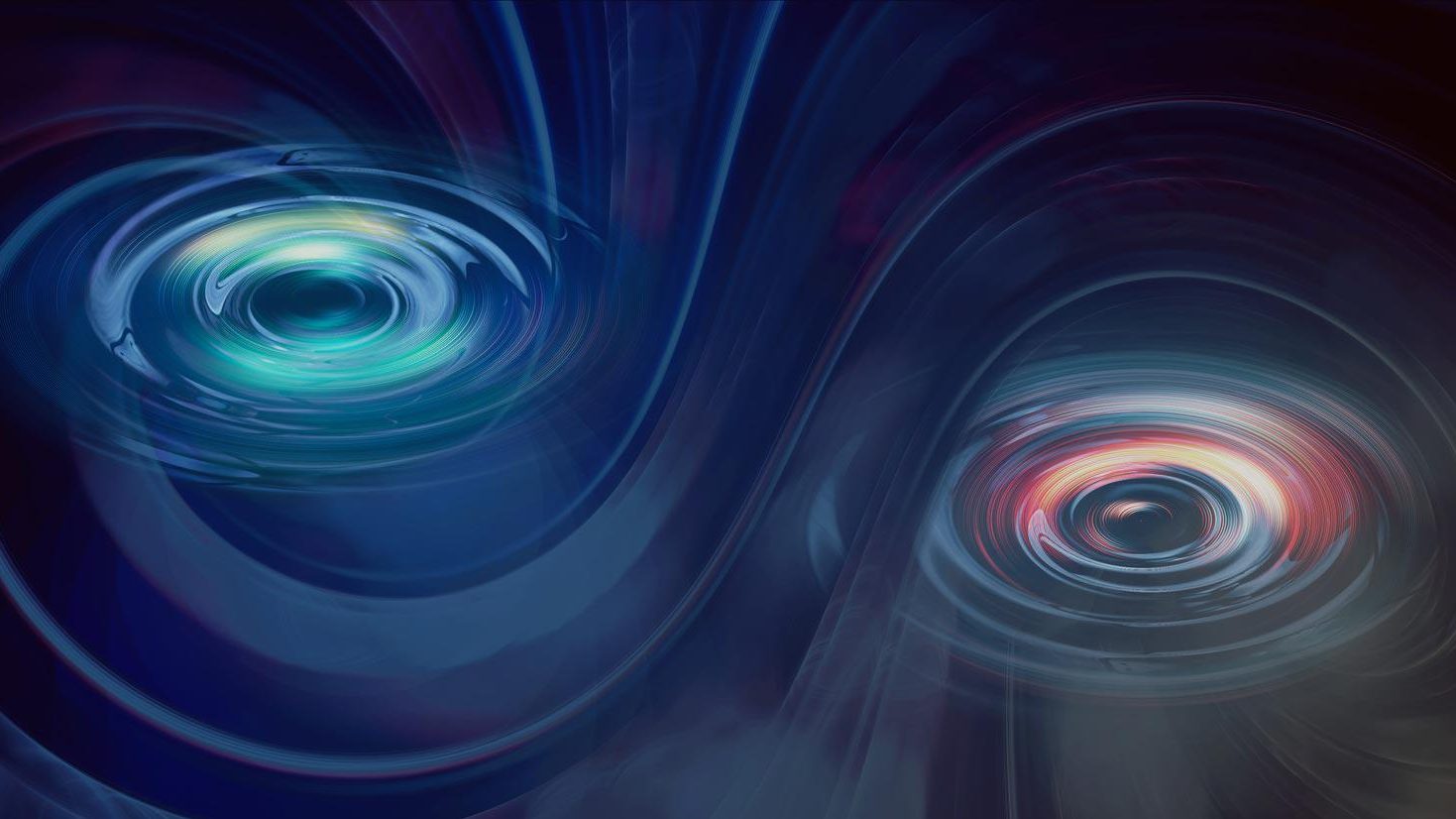Physicist advances a radical theory of gravity

Photo by Willeke Duijvekam
- The Dutch physicist Erik Verlinde’s hypothesis describes gravity as an “emergent” force not fundamental.
- The scientist thinks his ideas describe the universe better than existing models, without resorting to “dark matter”.
- While some question his previous papers, Verlinde is reworking his ideas as a full-fledged theory.
The Dutch theoretical physicist Erik Verlinde is no stranger to big ideas. His 2009 hypothesis about gravity earned him comparisons to Einstein for its complete rethinking of what gravity could be. Verlinde proposed that gravity was not a fundamental force of nature but rather emerged out of the interactions of information that fills the universe. He also didn’t think there was such a thing as “dark matter” – a useful construct which is supposedly taking up 27% of the known universe (but is yet to be observed). Now, in a new interview, Verlinde reveals he is taking steps towards conceptualizing his groundbreaking ideas in a full-fledged theory.
As reported by the Netherlands Organization for Scientific Research (NWO), Verlinde understands why many had trouble accepting his original proposal. After all, the previous leading explanations of gravity have been by Newton, who saw it as an invisible pulling force, and Einstein, who conceived of it as a curvature of space-time by mass and energy.
In Verlinde’s view, based on string theory, quantum information theory and the physics of black holes, gravity is an “entropic” force that comes into existence as a result of “information associated with the positions of material bodies,” as he wrote in his 2011 paper. What drives gravity is the quantum entanglement of tiny bits of spacetime information.
Ten years after publishing his ideas in a paper that caused much discussion, both from admirers and critics, Verlinde shares that he is still fleshing them out, based on the research and advancements that have taken place since then.
“Over the past ten years, we have gradually learned a lot more about how you should talk about space and time information,” said Verlinde to NWO. “I am seriously considering rewriting my story from 2009, but now formulated much more precisely. I think that could remove some of the scepticism that still exists.’
Verlinde: Gravity Doesn’t Exist
In 2016, Verlinde’s ideas were tested by a team from Leiden Observatory, which found that a key prediction of the physicist held up. They studied the lensing effect of gravitational fields that are far away from the centers of more than 33,000 galaxies and found the numbers to be consistent with what the Dutch scientist’s theory showed. The only way to get these calculations to match under the prevalent gravitational theory would have been to invoke dark matter – a potential fudge factor more than fact at this point.
A 2017 study from Princeton University found against Verlinde’s ideas, however, showing that they are not consistent with the observed data on the rotation velocities of dwarf galaxies.
While some have accused of Verlinde of publishing his thoughts too early, before they are packaged in a theory that explains all of the implications, the scientist thinks such naysayers don’t really understand the way theoretical physics works. “You need to elaborate and test a new idea step-by-step,” he explains, adding “We must find the correct formulations and techniques.’
Scientists like the theoretician Koenraad Schalm from Leiden University defend Verlinde, saying that “Contrary to the sceptics’ opinions, Verlinde’s work is definitely taken seriously”. In fact, Verlinde, who is the winner of the Spinoza Prize, has been cited over 700 times by other scientists.
The physicist himself feels his overall thesis that information is the fundamental building mechanism of the universe is becoming more accepted. Perhaps his long-awaited new paper on the subject can bring it to an even stronger position amidst the main physics ideas of our time.





